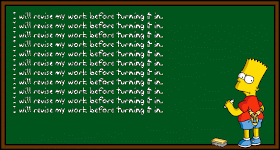For NaNoWriMo 2012, I started writing a novel. After two and a half years of a start-and-stop writing process and two rounds of professional workshops – The Gettysburg Review Conference for Writers and The Kenyon Review Novel Workshop – I am pleased to say...drum roll please...I finally have the first full rough draft of the novel!
I have 245 glorious word document pages glowing on my laptop screen. But I’m not finished yet. I need to revise, which is where I believe the true craft of writing takes place.
I prefer the revision stage over the drafting stage because I like having a mold to work with, to bend and shape and chisel into a piece of art. But I know from working with hundreds of composition students that many people resent and recoil from this stage, especially when it’s with a piece of writing this long.
So I’d like to share with you my revision process. I revise differently with different pieces of writing, or even with the same piece of writing on different days, but it generally looks like the process outlined below. I don’t suggest you follow my process exactly, but I do believe it’s helpful to hear other writers’ processes so you can pick and choose what will work for you.
My Revision Process
Take a break. Admittedly, this is the hardest part of the process for me. If I finished a draft, then I’m on a roll and want to keep going. But I become too close to the manuscript. I need to give myself time and distance so I can return to it with fresh eyes. I put the manuscript aside for a few days, minimum.
Reread the manuscript from start to finish. During this reading, I am checking the logic of the story. Does it make sense? Does it flow? Do I use the character’s names consistently throughout the novel and not accidentally change Jane’s name to Jenna halfway through? Did Dannie’s baby, who was born in July, suddenly become 18 months old by February? Does the opening page or chapter set a precedent for the tone, style, and content for the rest of the story? Does the ending make sense with the preceding story, and does it leave the reader feeling satisfied without tying everything with a neat little bow?
Reread the manuscript from start to finish. Again. One of my writing weaknesses is showing the setting. I get so involved in my characters’ appearances, actions, and speech that I forget to fully create the world in which they live. So after I have everything in place and well-organized plot-wise, I will go through the story again and fill in the descriptors that make the setting come to life.
Reread the manuscript from start to finish. Round three. This is where the revision process turns into the editing process because I will now search more carefully for typos and the quality of the line-by-line writing. As much as possible, I eliminate passive voice and the overuse of “to be” verbs because they often make the writing clunky and weak. I pay attention to the rhythm of sentences: are there too many short, choppy sentences in a row for no reason? Why is this one sentence nearly a page long? Does the rhythm of the sentence match the pacing and action at that point of the story?
Give it to someone else to read. Even if I believe I have done a thorough job of revising and editing my manuscript, it is essential that I let someone else read it before I send it to an agent or a publisher. The story makes sense to ME, but that doesn’t guarantee it makes sense to everyone else. Other people bring new perspectives to the story and can help spot plot deficiencies or character flaws you may not have noticed on your own. Likewise, they may find some deep meaning in your story that you hadn’t noticed, which you can use when you pitch your story for publication.
Reread the manuscript AGAIN. This time, focus on the feedback from your reader(s) and decide what you’d like to revise based on the feedback. Learning to solicit the “right” kind of feedback and how to revise based on that feedback is a tricky process if you and/or your readers are unfamiliar with it, but that may be a post for a different day.
Were any of these steps helpful for you? What does your revision process look like?
Happy writing and revising!
Written by Anne Greenawalt, writer and writing instructor
Other Resources for Revising:
Writer’s Digest
Writer’s Digest Workshop
Huffington Post


Anne--This was great advice--a reminder that reading (and reading again) is crucial.
ReplyDeleteCongratulations, and good luck!
YAY! You finished a novel, and that is no easy to task. Thanks for sharing your process of hard work with us. :)
ReplyDelete